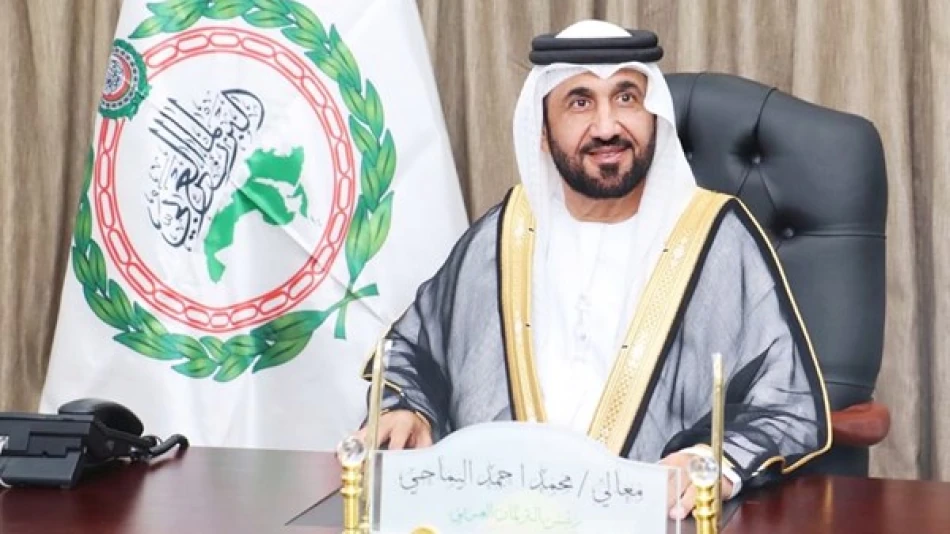
UAE's Unwavering Support for the Palestinian People Praised by Arab Parliament Chief
UAE Emerges as Leading Arab Humanitarian Power Through Gaza Relief Operations
The United Arab Emirates has positioned itself at the forefront of Arab humanitarian diplomacy through its massive relief operation for Gaza, delivering over 80,000 tons of aid since launching the "Gallant Knight 3" initiative. The Arab Parliament has praised the UAE's multi-modal approach—combining sea, air, and land deliveries—as a model for regional solidarity that extends beyond traditional diplomatic responses to humanitarian crises.
Massive Scale of Relief Operations
The UAE's humanitarian campaign represents one of the largest coordinated relief efforts in the region's recent history. The latest milestone came with the arrival of the "Khalifa Al Insaniya" ship at Al-Arish port, carrying over 7,166 tons of supplies including food, medical equipment, shelter materials, ambulances, and water tanks. This vessel marks the eighth ship in the current initiative.
The operation's scope is unprecedented: more than 600 flights, 17 cargo ships, and over 5,400 trucks have transported aid to Gaza. Beyond traditional supply deliveries, the UAE has established a field hospital inside Gaza and deployed a floating hospital off the coast of Al-Arish, demonstrating a comprehensive approach to crisis response.
Strategic Air Drops for Inaccessible Areas
The UAE has pioneered specialized airdrops to reach areas inaccessible by land routes, showcasing tactical innovation in humanitarian logistics. This approach addresses one of the most challenging aspects of Gaza relief operations—ensuring aid reaches isolated communities despite territorial restrictions and security concerns.
Regional Diplomatic Implications
The UAE's humanitarian leadership carries significant diplomatic weight beyond immediate relief efforts. Arab Parliament President Mohammed bin Ahmed Al-Yamahi emphasized that these initiatives represent "authentic solidarity" with the Palestinian cause, positioning humanitarian aid as a cornerstone of unified Arab political positioning.
The coordination between the UAE and Egypt highlights a strategic partnership model that could influence future regional crisis responses. Egypt's role as the primary gateway for Gaza aid makes this bilateral cooperation essential for operational success.
Comparison to Global Humanitarian Responses
The UAE's approach mirrors successful humanitarian interventions by countries like Germany during the Syrian refugee crisis and Japan's disaster relief operations in Southeast Asia. However, the scale and multi-modal nature of "Gallant Knight 3" sets a new benchmark for regional powers responding to neighboring crises.
Long-term Strategic Positioning
This humanitarian campaign reinforces the UAE's broader strategy of soft power projection across the Middle East. Similar to how the country has used economic diplomacy and cultural initiatives to build influence, large-scale humanitarian operations create lasting diplomatic capital and demonstrate leadership capacity to both regional and international audiences.
The emphasis on continuous coordination and systematic delivery mechanisms suggests the UAE views this not as a temporary response but as a sustained commitment that could extend well beyond the current crisis. This approach positions the Emirates as an indispensable partner for future regional stability efforts.
Implications for Arab Unity
The Arab Parliament's recognition of UAE efforts as a model for regional solidarity indicates potential for broader Arab coordination on humanitarian issues. This could signal a shift toward more institutionalized, UAE-led humanitarian responses that complement traditional diplomatic and political approaches to regional challenges.
Most Viewed News

 Layla Al Mansoori
Layla Al Mansoori






